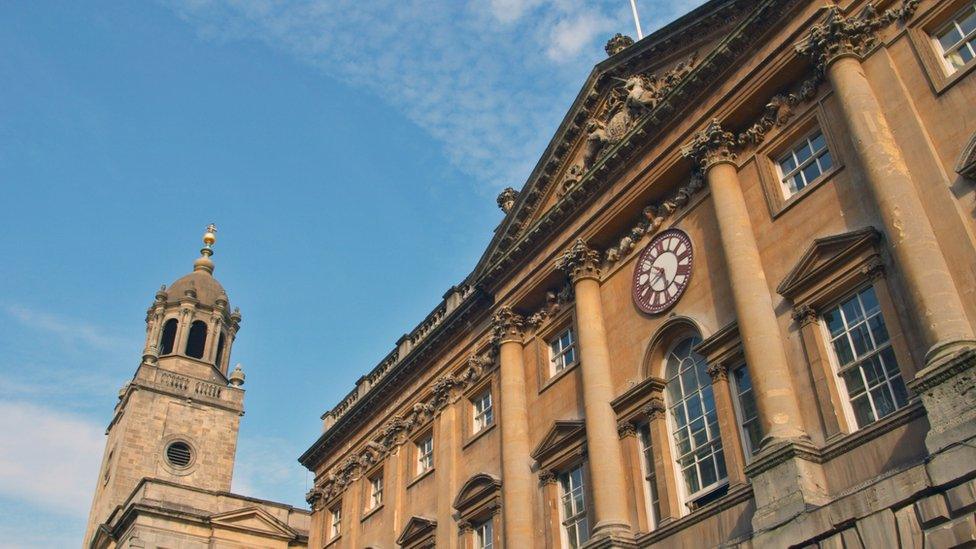Could Jamaica remove the Queen as head of state and become a Republic?
- Published
- comments
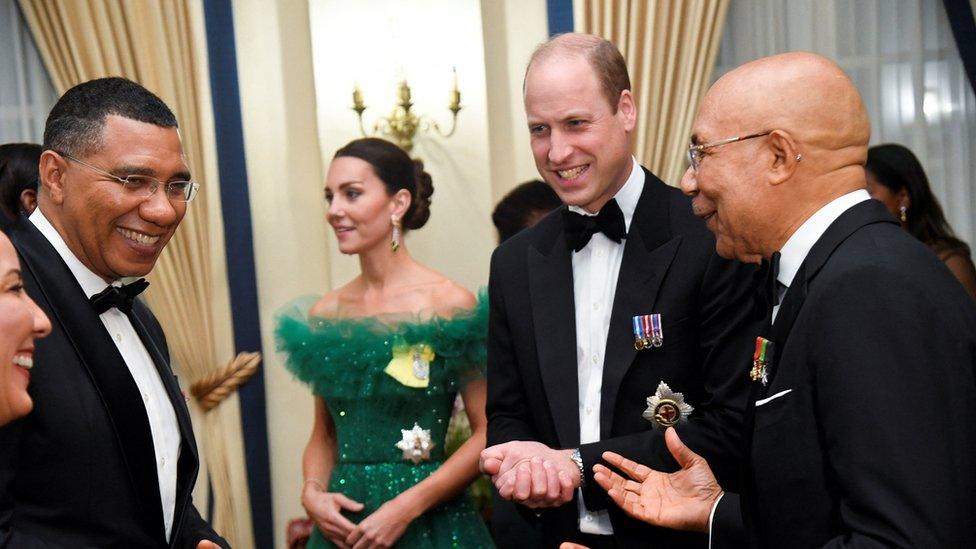
Jamaica's Prime Minister Andrew Holness (left) told the Duke of Cambridge there were "unresolved" issues between the UK and Jamaica
Jamaica's prime minister, Andrew Holness, has told Prince William that his country planned to achieve its goal of becoming an independent republic - separate from the UK royal family.
There have been calls in Jamaica to drop the Queen as head of state, which is the highest representative of a country.
Instead, some people, including the Jamaican PM, want the country to become a republic, which does not have a monarch, or a royal family, as its figurehead.
Mr Holness said Jamaica was "moving on" and added: "We intend to attain in short order our development goals and fulfil our true ambitions and destiny as an independent, developed, prosperous country."
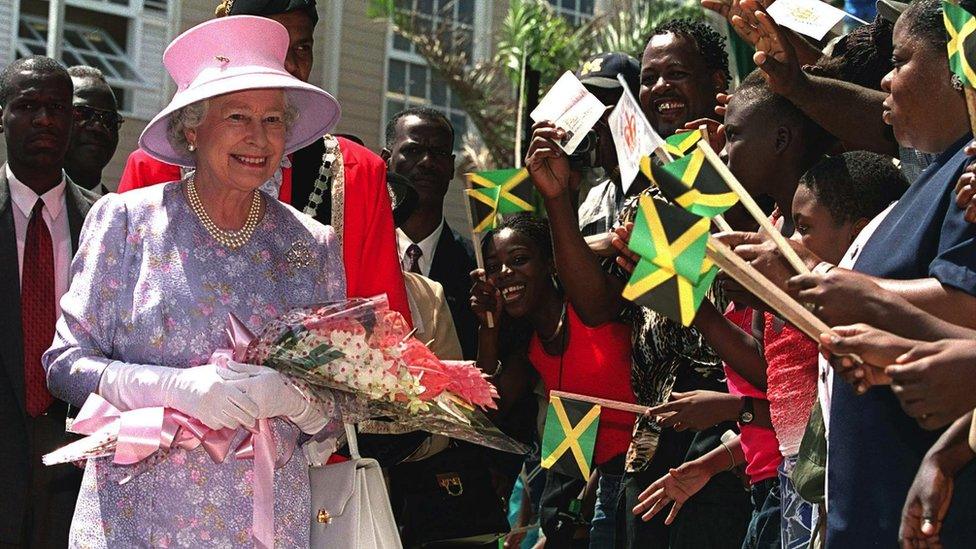
Queen Elizabeth, seen here visiting Jamaica in 2002, is the island's head of state
The royal visit by the Duke and Duchess of Cambridge has seen protests urging the British monarchy to pay back money for the slave trade.
Prince William said slavery was terrible, "should never have happened" and "forever stains our history" during a speech on the royal tour to the Caribbean.
The current tour comes just a few months after Barbados removed the Queen as its official head of state.
Jamaica is a former British colony, which gained independence from the British Empire on 6 August 1962.
What was the British Empire?
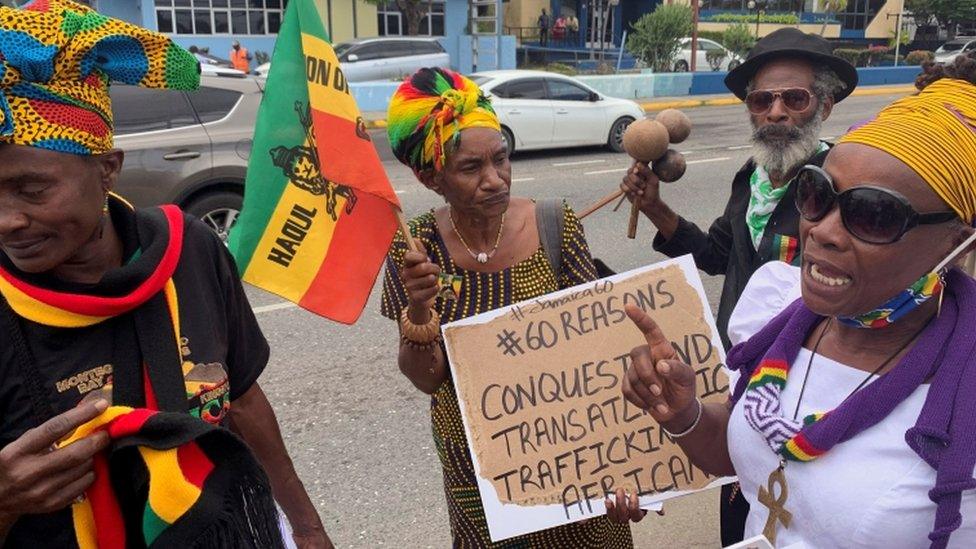
Some protesters gathered in Kingston this week with placards and accused the monarchy of benefitting from the hard work of slaves
The British Empire was made up of the UK, and countries ruled to some degree by and from Britain.
In the 16th century England began to establish overseas colonies.
By 1783, Britain had a large empire with colonies in America and the West Indies.
The British Empire was the biggest empire in history and at one point Britain was in control of almost one quarter of the world.
As nations became independent from the empire, the Commonwealth was started.
What is the Commonwealth?
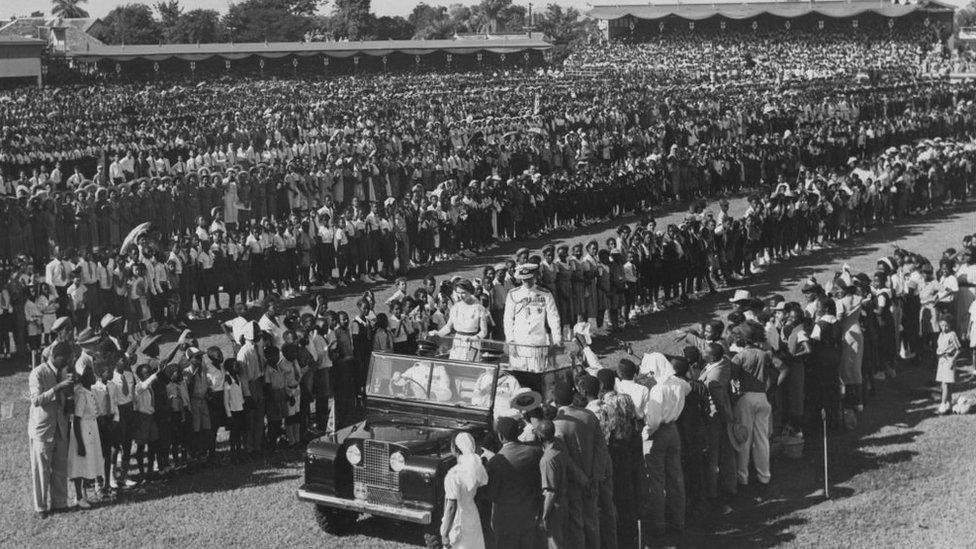
Queen Elizabeth and her husband Prince Philip in their Land Rover at a children's rally in Kingston, Jamaica, in 1953 - her first visit as the monarch
The Commonwealth is a collection of 54 countries that are linked historically in some way to Great Britain, all apart from Mozambique.
The Queen is head of the Commonwealth, but also the head of state for 15 of the countries within it, including the UK, Australia, Canada and New Zealand.
Almost one in every three people in the world live in the Commonwealth, and it is made up of people of all faiths, races, languages, cultures and traditions.
All members have signed up to a set of values including democracy, gender equality and international peace and security.
Jamaica is an island in the Caribbean
Its capital is Kingston
The island gained its independence from Britain in 1962
Queen Elizabeth remains its constitutional monarch
Jamaica once relied heavily on selling sugar to other countries for its economy, but it now makes lots of money through tourism and mining
Its prime minister is Andrew Holness, who was elected in 2016
Usain Bolt, the world's fastest man, is one of the country's most famous people
Have any other Caribbean countries become republics?
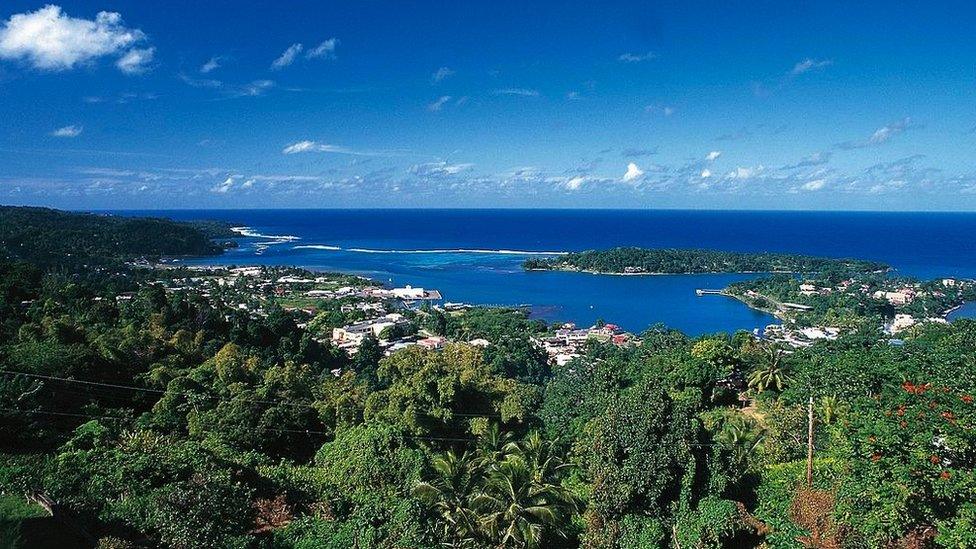
Jamaica is a beautiful island home to 2.9 million people
Jamaica would not be the first former British colony in the Caribbean to become a republic.
Guyana made the decision to remove the Queen as head of state in 1970.
Trinidad and Tobago followed in 1976 and Dominica in 1978.
Last year, Barbados officially removed the Queen as its head of state in a ceremony attended by the Prince of Wales.
All four countries stayed within the Commonwealth.
- Published29 November 2021
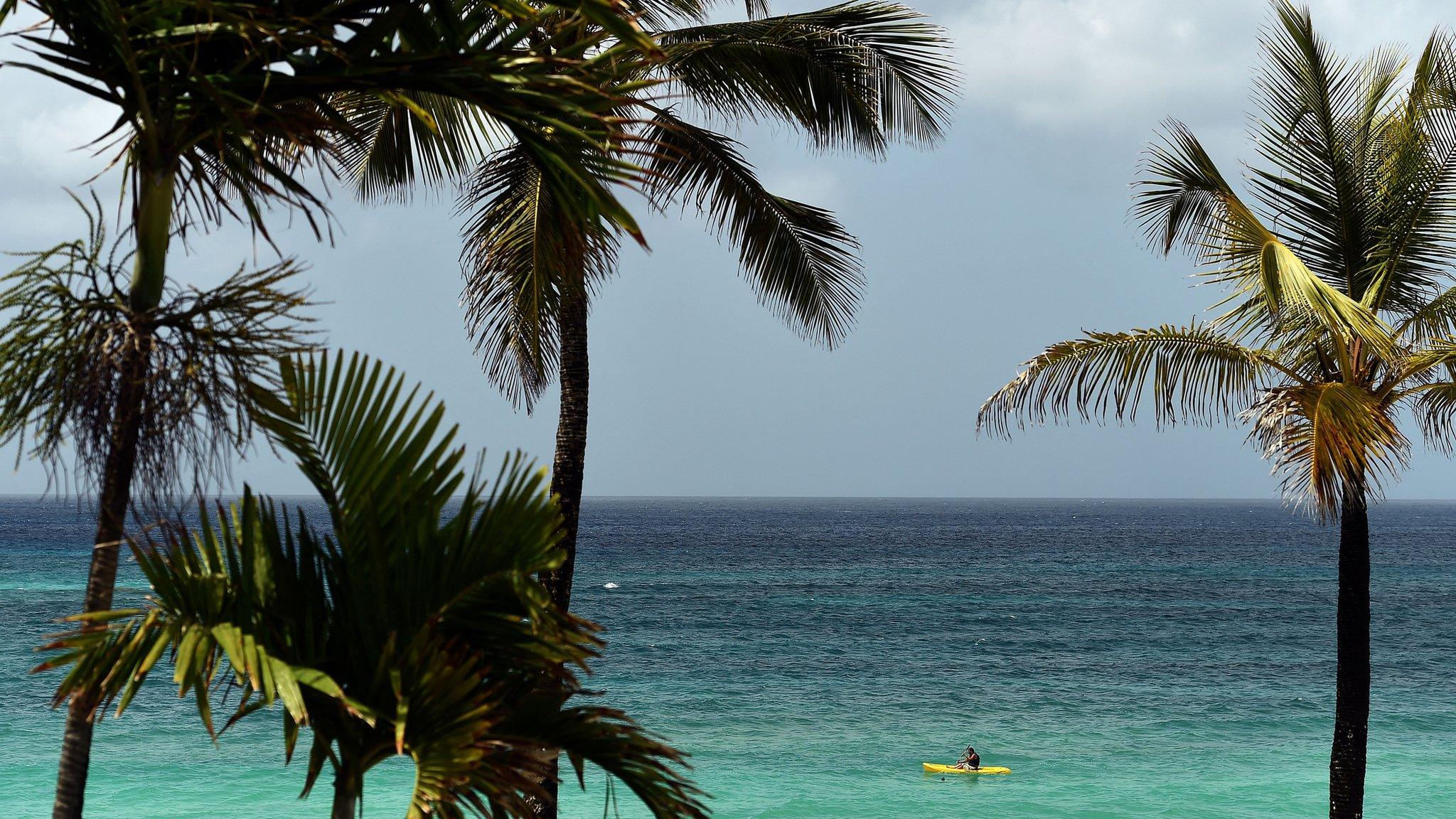
- Published28 September 2023
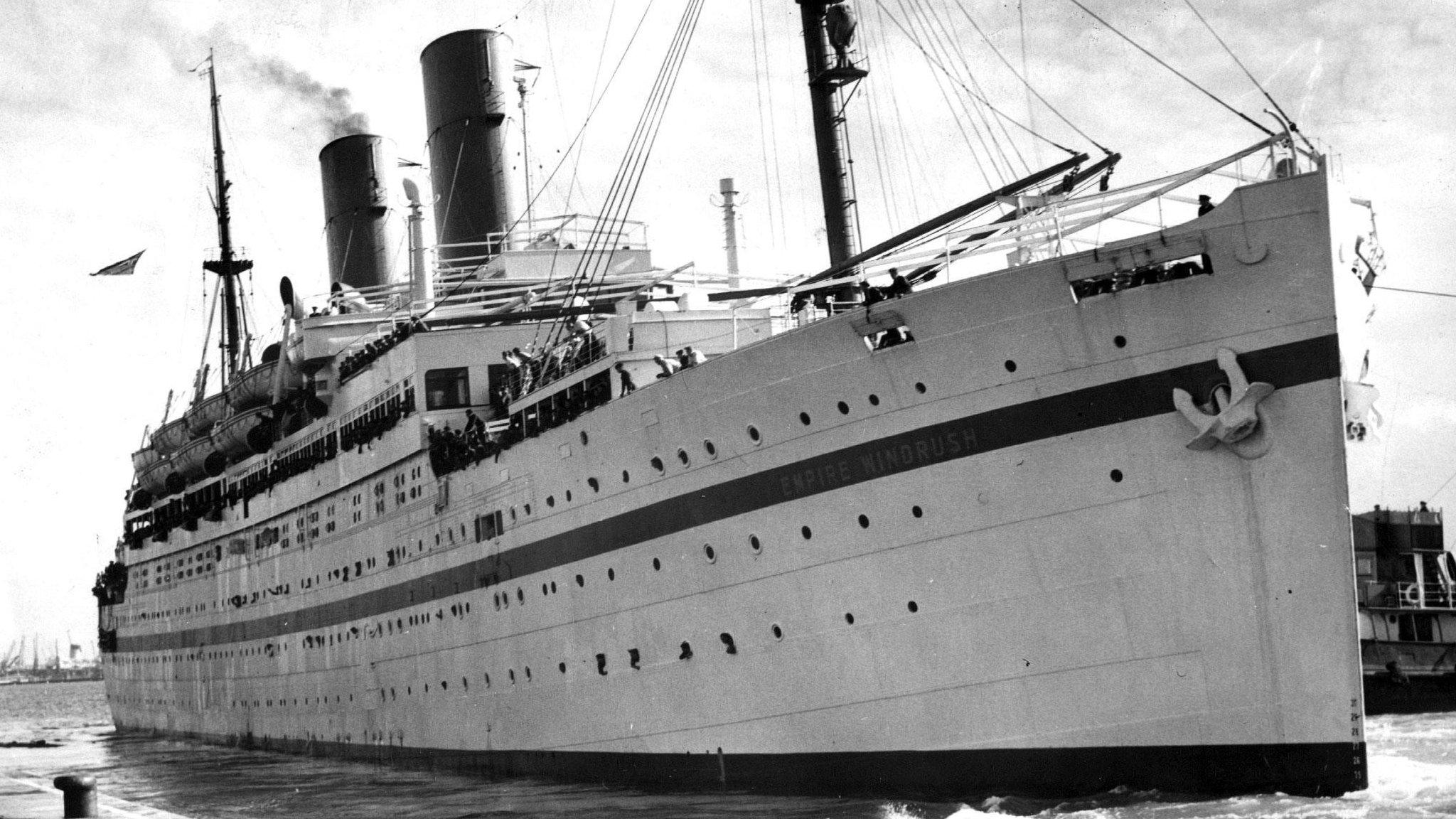
- Published26 September 2023
